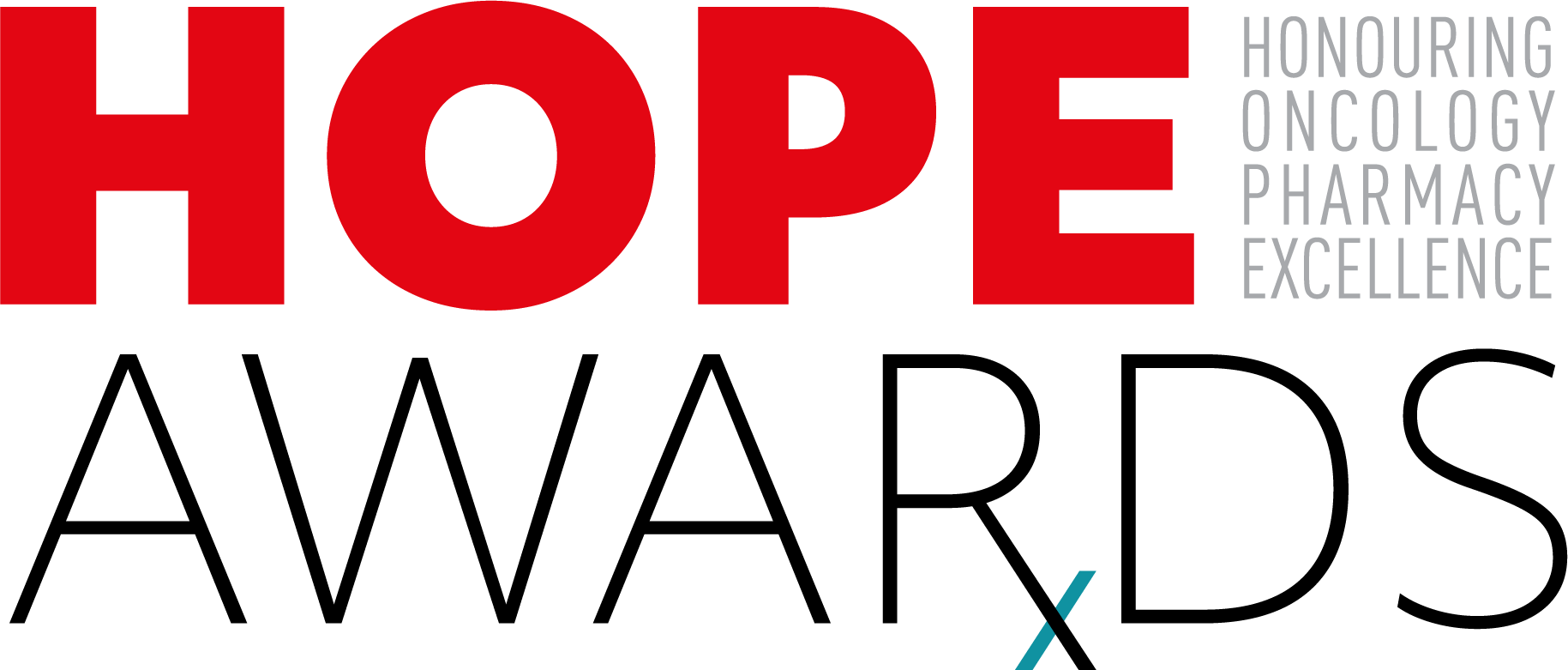INTER-PROFESSIONAL PROGRAMS SECOND PLACE WINNERS:
Mary Yousef, Dr. Charles Lim, Melissa Li & Anjana Sengar
Trillium Health Partners
Mary Yousef, Melissa Li, Anjana Sengar, and Dr. Charles Lim were awarded a 2nd Place HOPE Award in Inter-Professional Programs to Support Patient Care for their project, ‘Safe and Reliable Inpatient Chemotherapy Administration: Impact of An Ambulatory Oncology Pharmacist’.
Given their extensive adverse effect profiles, any errors involving chemotherapy medications are at high risk for causing patient harm. Analysis of inpatient chemotherapy related incidents at Trillium Health Partners, a Canadian academically-affiliated health system, between May 2019 and April 2021 revealed a number of key drivers for incidents including gaps in coordination of care, provider ordering practices and communication between different clinical teams.
Design: A dedicated inpatient oncology pharmacist role, staffed by an ambulatory care oncology pharmacist, was implemented from August 2021- July 2022. The primary goal was to achieve a 50% reduction in inpatient incidents per 100 doses of chemotherapy by July 2022. Secondary goals included improving interdisciplinary communication and coordination of care. Three data elements were collected: number and severity of incidents, types of pharmacist interventions and provider satisfaction. The clinical and organizational impact of the pharmacists’ interventions were assessed by a multidisciplinary team using the validated CLEO tool.
Results: Incidents decreased by 80% per 100 doses of administered inpatient chemotherapy, with a significant shift from actual incidents to reportable circumstances. Chemotherapy coordination, chemotherapy dose adjustments and adapting orders for inpatient use were the most common pharmacist interventions. The interventions had major and moderate clinical impact and a positive organizational impact as assessed by the CLEO tool. Feedback through provider satisfaction surveys showed 52% increase in satisfaction with the inpatient chemotherapy process. This was attributed to the specialized oncology pharmacist role, which provided a more collaborative approach and improved communication and coordination of care between inpatient and ambulatory settings.
Implementing a dedicated ambulatory oncology pharmacist in an inpatient setting facilitated safe administration of inpatient chemotherapy and improved multidisciplinary coordination. This model for implementation demonstrates the value of utilizing the niche outpatient clinical knowledge of oncology pharmacists, applied to inpatient roles to coordinate care in corresponding specialized inpatient populations.
INTER-PROFESSIONAL PROGRAMS
FIRST PLACE WINNER:
Lauren Hutton
Nova Scotia Health
Mary Yousef, Melissa Li, Anjana Sengar, and Dr. Charles Lim were awarded a 2nd Place HOPE Award in Inter-Professional Programs to Support Patient Care for their project, ‘Safe and Reliable Inpatient Chemotherapy Administration: Impact of An Ambulatory Oncology Pharmacist’.
Given their extensive adverse effect profiles, any errors involving chemotherapy medications are at high risk for causing patient harm. Analysis of inpatient chemotherapy related incidents at Trillium Health Partners, a Canadian academically-affiliated health system, between May 2019 and April 2021 revealed a number of key drivers for incidents including gaps in coordination of care, provider ordering practices and communication between different clinical teams.
Design: A dedicated inpatient oncology pharmacist role, staffed by an ambulatory care oncology pharmacist, was implemented from August 2021- July 2022. The primary goal was to achieve a 50% reduction in inpatient incidents per 100 doses of chemotherapy by July 2022. Secondary goals included improving interdisciplinary communication and coordination of care. Three data elements were collected: number and severity of incidents, types of pharmacist interventions and provider satisfaction. The clinical and organizational impact of the pharmacists’ interventions were assessed by a multidisciplinary team using the validated CLEO tool.
Results: Incidents decreased by 80% per 100 doses of administered inpatient chemotherapy, with a significant shift from actual incidents to reportable circumstances. Chemotherapy coordination, chemotherapy dose adjustments and adapting orders for inpatient use were the most common pharmacist interventions. The interventions had major and moderate clinical impact and a positive organizational impact as assessed by the CLEO tool. Feedback through provider satisfaction surveys showed 52% increase in satisfaction with the inpatient chemotherapy process. This was attributed to the specialized oncology pharmacist role, which provided a more collaborative approach and improved communication and coordination of care between inpatient and ambulatory settings.
Implementing a dedicated ambulatory oncology pharmacist in an inpatient setting facilitated safe administration of inpatient chemotherapy and improved multidisciplinary coordination. This model for implementation demonstrates the value of utilizing the niche outpatient clinical knowledge of oncology pharmacists, applied to inpatient roles to coordinate care in corresponding specialized inpatient populations.
